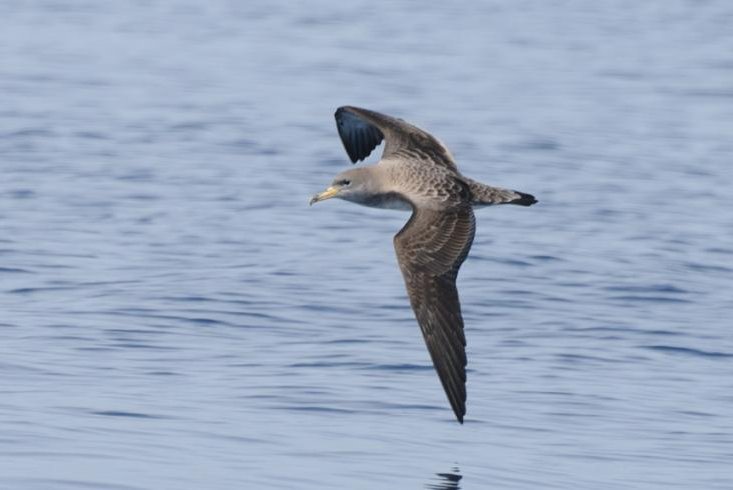A study of Scopoli's shearwaters living along the coast of the Spanish island of Menorca suggests a bird's sense of smell is essential long-distance travel. Photo by Oxford University
Aug. 29 (UPI) -- Birds have a nose for direction. New research shows a bird's sense of smell is essential to long-distance migration.
Different bird species rely on different combinations of senses to navigate their way across long distances, but scientists have struggled to determine which factor -- whether magnetic field detection or olfaction -- is most important.
Previous studies have shown blocking a bird's sense of smell is more disruptive to the bird's ability to navigate than a disruption of a bird's magnetic sense.
"However, critics have questioned whether birds would behave in the same way had they not been artificially displaced, as well as arguing that rather than affecting a bird's ability to navigate, sensory deprivation may in fact impair a related function, such as its motivation to return home or its ability to forage," Oliver Padget, a zoologist at Cambridge University, said in a news release.
Researchers were able to prove the importance of olfaction to migration in their latest study of a group of free-ranging Scopoli's shearwaters living along the coast of the Spanish island of Majorca.
Scientists split the birds into three groups. One group had their senses of smell disabled through exposure to zinc sulphate. Magnets allowed researchers to disrupt the magnetic sense of the second group. A third group served as a control group. GPS devices allowed researchers to track the birds' movements.
Researchers found all three groups took regular foraging trips and returned home safely, suggesting a lack of olfaction does not prevent or disrupt normal day-to-day foraging behavior.
When the group of birds without a sense of smell took longer flights over open ocean, the birds took unusual, inefficient and surprisingly straight routes. These poorly oriented routes normalized once birds came back into sight of land, suggesting smell is essential to long-distance travel but not necessary for shorter local trips when visual topographical cues are available.
Scientists shared their findings in a paper published in the journal Scientific Reports.
"To the best of our knowledge, this is the first study that follows free-ranging foraging trips in sensorily manipulated birds," said Tim Guilford, a professor of animal behavior. "The displacement experiment has -- rightly -- been at the heart of bird navigation studies and has produced powerful findings on what birds are able to do in the absence of information collected on their outward journey."















